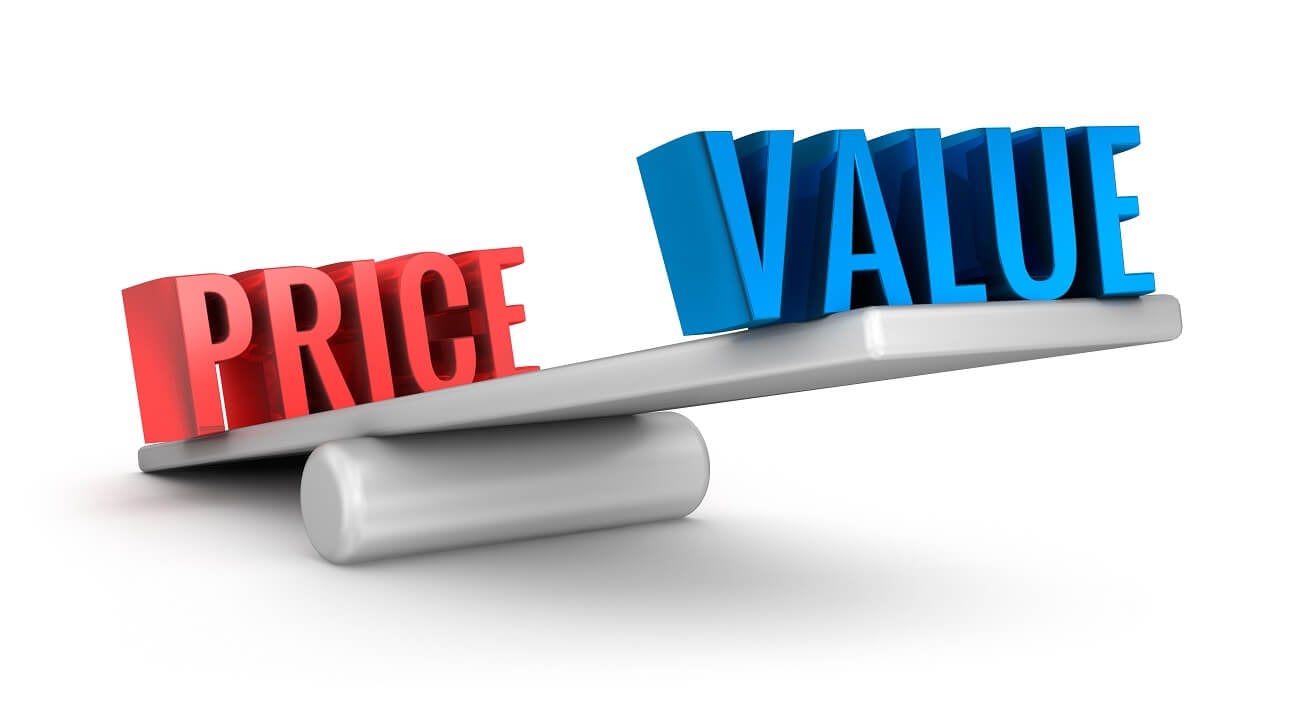
Why Value Matters More than Price
Allow me to be vulnerable for a minute and tell you about the biggest mistake in my professional life.
For many years, I was a poor businessman. I was a self-starter with the entrepreneur’s drive, and I started several businesses. My first business was when I was 7 years old.
But I didn’t make a successful business for many years, and instead worked my butt off without starting anything that really had legs. And the reason that I didn’t succeed was because I was scared to invest.
Bootstrapping works, but I took it to an art form and never bet on anything other than myself. So instead of going pro and buying what I needed for my business, I did too much alone and substituted my own time instead of investing in the tools and people that I should have been relying on.
Of course my businesses didn’t grow like they could have done. They didn’t have the right tools and people in place.
This could be a cautionary tale for would-be startup founders, but it also is a lesson for successful businesses that need better business systems and are thinking about going with the cheapest possible solution.
Price Isn’t Everything
The cheapest option when I was a young entrepreneur was doing it myself. But what I failed to consider was the opportunity cost. By doing it myself, I was playing small ball and couldn’t focus on the bigger things that earned my business more money than I was saving by going DIY.
Investing $30,000 is a lot of money unless that investment leads to $100,000 in new business.
This is the same situation as selecting business software based on price. Going with the cheapest ERP software looks like a savings over pricier options until the value from the more expensive software is considered. When return on investment is considered more fully, the more expensive solution might actually be the better purchase because it saves more money and creates more revenue than the cheaper options.
With something as wide-ranging and complex as ERP software, it is especially easy to lose sight of the true value of a given solution.
For instance, let’s talk about connectivity. The cheapest ERP solution might advertise that it connects with popular third-party software solutions, and that’s true. But how many connectivity options does it come with, and are they the connections that your business needs?
The cheapest ERP system might require middleware or custom coding to make it perform like your company needs, and quickly the cost of developing and maintaining these custom solutions far exceeds the savings of the “cheaper” option. The more expensive ERP solution that connects with everything out of the box actually costs less.
Another example is staying current with the latest tech trends. The cheapest ERP solution might have the bells and whistles today, advertising things like AI and the blockchain. But will it update as regularly as the more expensive solutions, continuing to function at the cutting edge and helping businesses adapt to the latest technological changes in the market?
Raise your hand if you’ve ever bought cheap software and then had to abandon it when it became outdated or went inadequately supported? I know I made that mistake early in my career. The cheapest solution is usually cheapest for a reason, which is why most of us go with Apple smartphones instead of knock-off brands.
Or what about the most direct example: Earning more as a result of investing in better software.
A good ERP system enables widespread process automation and both the collection of all company data and analytics that help businesses act on that data. Read the success stories of businesses that have adopted the most popular ERP solutions, and you invariably read about new revenue streams, 20 percent jumps in revenue, and other tales of massive financial upside.
Do cut-rate ERP solutions offer the same level of automation and analytics? Do the homework yourself, but the answer almost always is no. These cheaper solutions work, but they give a much smaller upside to businesses in much the way that me doing all the work for my business sounded good until I discovered the money it was keeping me from making.
ERP Selection: Cheapest is Not Always Best
You Get What You Pay For
Sometimes the most expensive option is more expensive just because it has a brand name. But more often than not, there’s more to it than that: the brand name commands a higher price because it subtly delivers more.
Like an iPhone. Or a Tesla. Or Heinz ketchup.
There’s a time for basing buying decisions solely on price. If two products are the same, or the needed functionality of the product is the same, of course it is smart to get the cheaper one.
The problem is that the cheaper option usually isn’t comparable. It just looks comparable. That’s why the most successful people and businesses don’t go cheap. On first blush the cheaper option looks good, but it usually isn’t.

